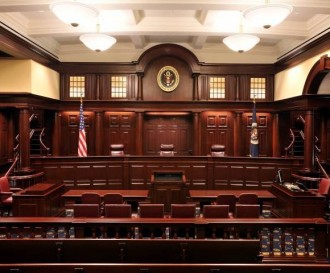August 24, 2015
Board Dismisses Petition for Failure Name All Real Parties-In-Interest
Patent Owners get frustrated when they believe a petition fails to identify all real parties-in-interest. This is understandable, given the difficulties in obtaining additional discovery on the issue. However, sometimes Patent Owners get that discovery, and when a Patent Owner does get the evidence it needs, it has a kill shot. This is again reflected in Corning Optical Comm’ns RF, LLC v. PPC Broadband, Inc., IPRs2014-00440, -00441, and 00736.
There, the Board instituted review of three patents. The petitions were filed less than a year after a lawsuit was service against Petitioner. Patent Owner’s argument, though, was that the petition was not entitled to the original filing date because not all real parties-in-interest were named. Rather, Patent Owner argued, a new filing date would be set only upon submission of updated mandatory notices. Because the one-year deadline (from service of the complaint) had passed, that would mean that the petitions would be barred under § 315(b).
After institution, the Board authorized a motion for additional discovery directed to whether the Petitioner (Corning) should have identified its parent (Corning Inc.) and sister (Corning Optical Comm. LLC) companies. The issue was whether those companies funded or controlled the IPRs. The Board first addressed the issue of whether Patent Owner waited too long in raising the issue. The Board decided that Patent Owner’s argument was timely, because Patent Owner only gained notice of the issue shortly before alerting the Board, based on discovery in an underlying ITC investigation. As to the substance of the issue, the Board noted the highly fact-specific nature of the real-party-in-interest analysis. Here, there was evidence of commingling between the three Corning entities, including because common employees of each were involved in the IPR and because Corning Inc. payed the attorneys’ fees. As the result, the Board found that “Petitioner’s actions have blurred sufficiently the lines of corporate separation” with Corning NC, such that Corning NC ‘could have controlled the filing and participation of the IPRs.’ Zoll, Case IPR2013-00606, slip op. at 10 (Paper 13). Furthermore, we determine that evidence sufficiently establishes that Corning Inc. funded these IPR proceedings, and also exercised or could have exercised control over Petitioner’s participation in these proceedings. Trial Practice Guide, 77 Fed. Reg. at 48,759–60; Atlanta Gas, Case IPR2013-00453, slip op. at 8–9 (Paper 88).”
The Board then determined that the petitions could not be afforded their original filing date because of the failure to name all real parties-in-interest. Because it was then a year past service of the complaint, any new filing date would result in a bar under § 315(b). The Board thus dismissed the petitions.



































